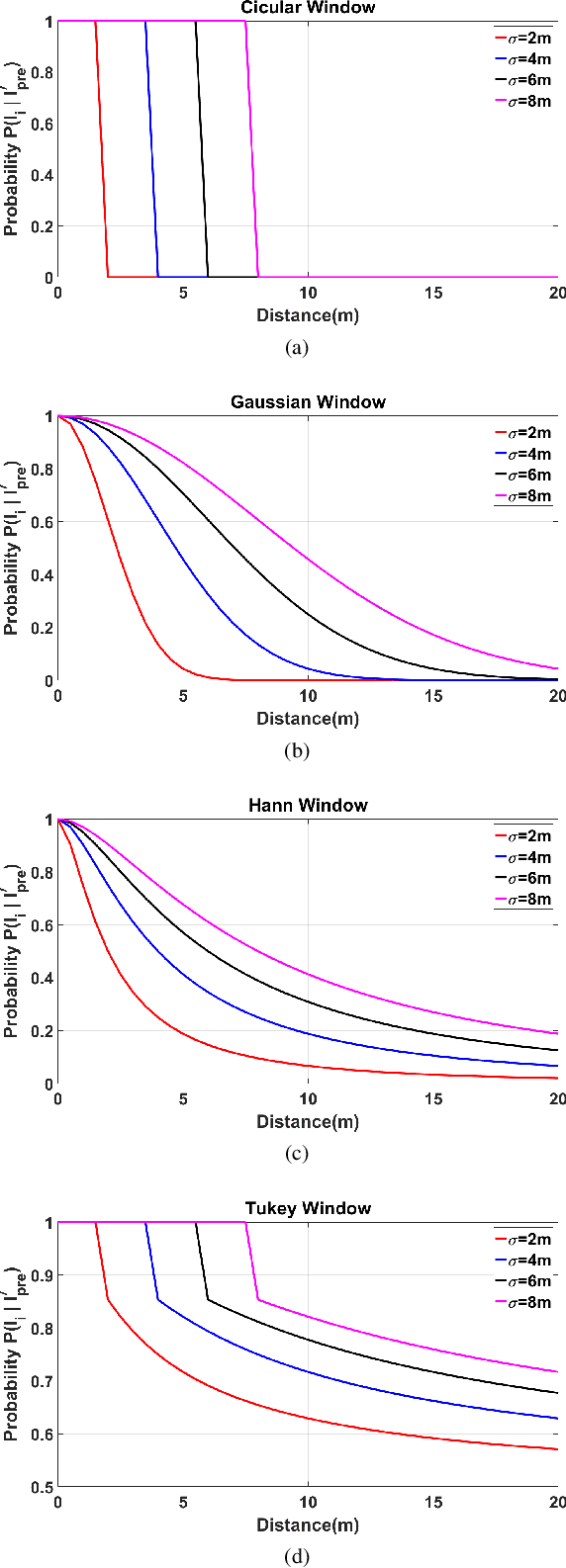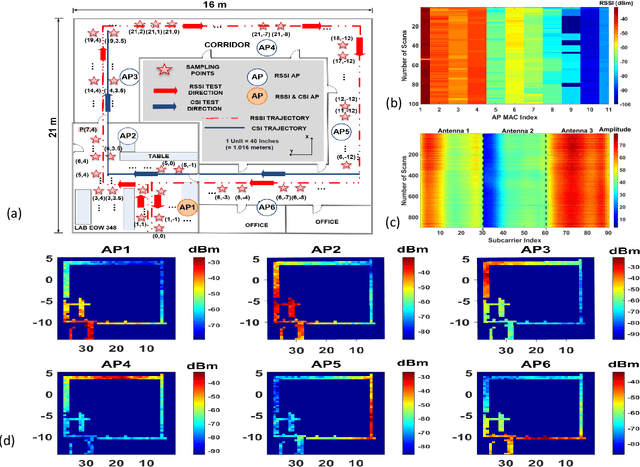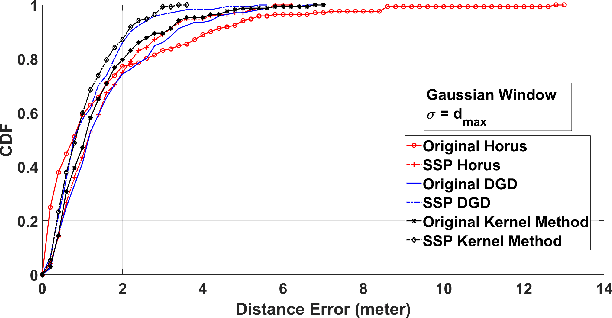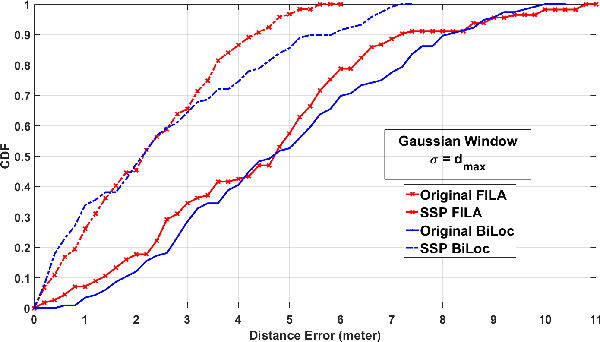Semi-Sequential Probabilistic Model For Indoor Localization Enhancement
Paper and Code
Jan 08, 2020



This paper proposes a semi-sequential probabilistic model (SSP) that applies an additional short term memory to enhance the performance of the probabilistic indoor localization. The conventional probabilistic methods normally treat the locations in the database indiscriminately. In contrast, SSP leverages the information of the previous position to determine the probable location since the user's speed in an indoor environment is bounded and locations near the previous one have higher probability than the other locations. Although the SSP utilizes the previous location information, it does not require the exact moving speed and direction of the user. On-site experiments using the received signal strength indicator (RSSI) and channel state information (CSI) fingerprints for localization demonstrate that SSP reduces the maximum error and boosts the performance of existing probabilistic approaches by 25% - 30%.
 Add to Chrome
Add to Chrome Add to Firefox
Add to Firefox Add to Edge
Add to Edge